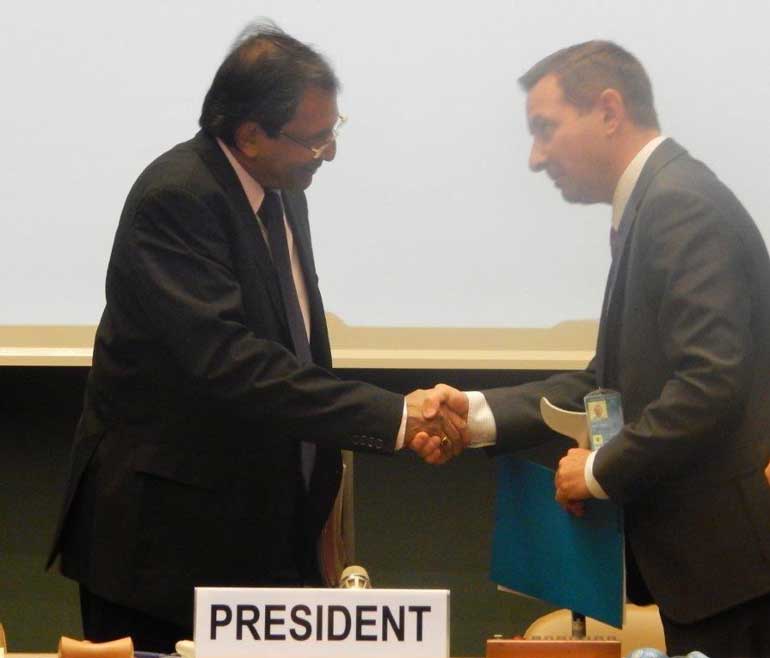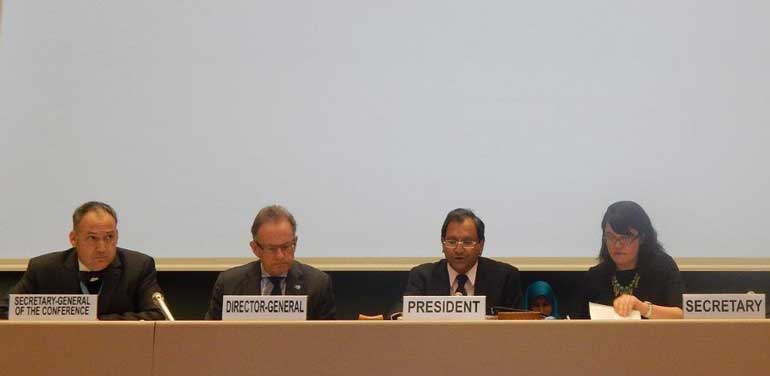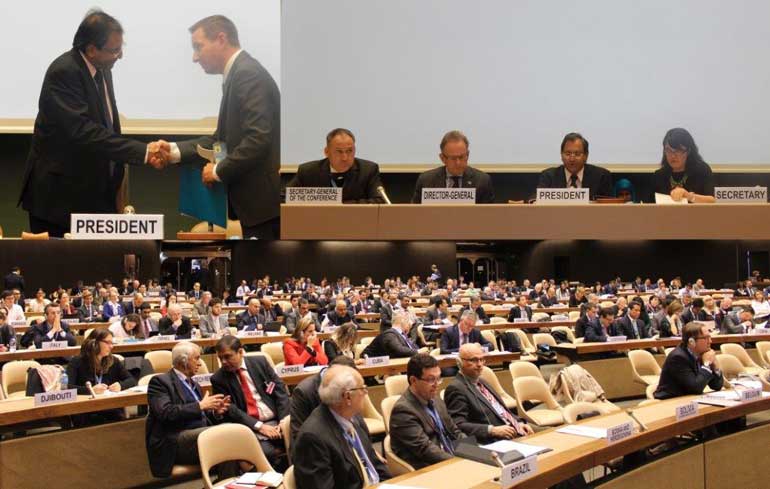Tuesday Mar 03, 2026
Tuesday Mar 03, 2026
Saturday, 14 November 2015 00:00 - - {{hitsCtrl.values.hits}}




Sri Lanka’s Ambassador to the UN in Geneva Ravinatha Aryasinha presided over the Meeting of the High Contracting Parties to the Convention on Certain Conventional Weapons (CCW) which opened on 12 November at the United Nations Office in Geneva.
Ambassador Aryasinha was formally designated to this post in November 2014, succeeding Ambassador Remigiusz A. Henczel of Poland. Over the past year Ambassador Aryasinha held extensive consultations with all stakeholders, state parties, non-governmental organisations and civil society members on key issues on the agenda of the CCW, including Lethal Autonomous Weapon Systems (LAWS).
In his opening remarks, Aryasinha thanked Members for the confidence and trust placed in him and Sri Lanka to take forward the objectives of this Convention, as a clear sign of the international recognition of Sri Lanka’s steadfast contribution to the field of disarmament over many decades.
“Our acceptance of the Chair, in turn, was yet another manifestation of Sri Lanka’s firm belief in and commitment to the UN multilateral system and the pivotal role it plays in maintaining international peace and security, notwithstanding the continued challenges it faces,” he said.
Ambassador Aryasinha said it is the responsibility of the State Parties to observe and learn through the historical challenges faced by the Convention, and to provide new impetus and leadership to strengthen the CCW framework and to ensure that it continues to remain abreast of new developments in the field of the methods of warfare, including those of Lethal Autonomous Weapons (LAWS), which may yield outcomes whose potential for dual use is unfettered, but without human control.
He said the CCW also provides the necessary guarantee towards enhancing cooperative security taking into account the security interests of all States on the basis of the principle of undiminished security for all, while also ensuring the need for full compliance with IHL principles, thereby protecting both civilians and combatants from indiscriminate attacks and unjustifiable suffering.
UN Secretary General Ban Ki-moon in a message to the meeting, noting that “Sustainable Development Goals explicitly recognise the symbiotic nature of development and disarmament”, observed that “the CCW and its Protocols are among the most vital tools at the international community’s disposal to ensure that this and future generations enjoy a safer and more secure world”.
The Director-General of the UN Office in Geneva Michael Moller, said the “the strength and ongoing credibility of the CCW regime will be judged by its responses to both old and new threats in the area of conventional weapons”, and urged that it be tackled “with an increased sense of urgency and purpose”.
The two day meeting on 12-13 November is the annual political level gathering of the Convention where the State Parties, Signatories, the United Nations, the ICRC, other international organisations as well as the Civil Society representatives make important decisions on the next steps of the Convention for the coming year.
State Parties will deliberate on a number of issues this year, among which the most important will be on how to move forward with the discussions on the emerging technology of LAWS. The meeting will also consider preparations for the 5th Review Conference of the Convention scheduled for next year.
The Convention currently with 121 States parties, aims to ban or restrict the use of specific types of weapons that are considered to cause unnecessary or unjustifiable suffering to combatants or to affect civilians indiscriminately. The meeting also seeks to realise universalisation of the convention as a way forward to effectively respond to the contemporary challenges emanating from conventional weapons and associated emerging technologies.